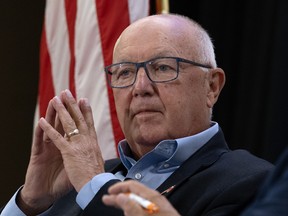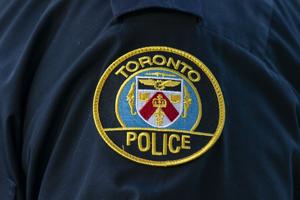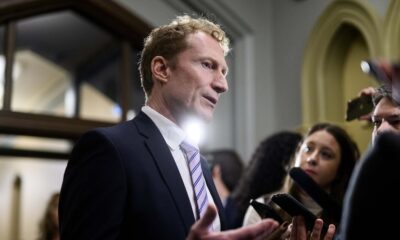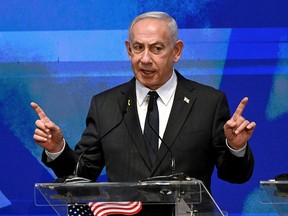Politics
U.S. Ambassador Faces Criticism Over Diplomatic Attitude

The attitude of Pete Hoekstra, the U.S. ambassador to Canada, has sparked criticism after he expressed dissatisfaction with his role in the country. Some commentators suggest that if he feels unwelcome, he should consider returning to the United States. Critics argue that such sentiments undermine his capacity to perform effectively as a diplomat.
In a letter to the editor, Neil Graves from Luskville, Quebec, articulated his frustration, stating that Hoekstra’s lack of enthusiasm for his duties indicates he is unqualified for the role he was chosen for. The sentiment reflects a growing concern about the effectiveness of diplomatic relations between the two nations.
Animal Research Debate Highlights Ethical Dilemmas
A recent article in the National Post regarding the use of dogs in research has ignited a debate about animal testing. The piece reported on the humane sacrifice of numerous dogs at a private laboratory near Toronto, raising ethical questions about the practice.
Wayne Boyce, a dog owner from Carleton Place, responded to the article, emphasizing the importance of animal research in medical advancements. He pointed out that millions of individuals with diabetes rely on insulin, which was developed through animal testing. Boyce questioned whether parents would deny their children insulin on ethical grounds, highlighting the necessity of animal studies in drug development.
He remarked, “Sometimes you are better off not knowing how things are made,” referencing the often-overlooked complexities involved in medical research. Boyce’s perspective adds nuance to the ongoing discussion about the balance between ethical considerations and scientific advancement.
Canadian Government’s Recognition of Palestine Sparks Discussion
The recognition of Palestine as a state by Canada has led to questions regarding the responsibilities this recognition entails. James Kafieh, the vice-president of the Palestinian Canadian Congress, highlighted the need for the Canadian government to consider how it will support the region following this acknowledgment.
However, critics like Jill Young from Ottawa argue that Canada is under no obligation to protect Palestine. Young commented on the absurdity of equating Palestine’s status with that of established U.S. states, suggesting that the recognition does not confer automatic responsibilities.
The discourse around leadership in Canada remains a pressing issue. Dean Sutton from Chilliwack, British Columbia, raises concerns about politicians prioritizing political gains over the needs of the populace. He called for a leader who would put the country first, questioning whether such a figure is currently available.
As discussions on these topics continue, the responses from Canadians reflect a diverse range of opinions and highlight the complexities of diplomatic relationships, ethical considerations in research, and the responsibilities of political leadership.
Letters to the editor encourage public participation in these debates, urging contributors to express their views in a civil manner. The engagement of the community in such discussions is essential for fostering a more informed dialogue on critical issues facing the nation today.
-

 Politics4 weeks ago
Politics4 weeks agoSecwepemc First Nation Seeks Aboriginal Title Over Kamloops Area
-

 World5 months ago
World5 months agoScientists Unearth Ancient Antarctic Ice to Unlock Climate Secrets
-

 Entertainment5 months ago
Entertainment5 months agoTrump and McCormick to Announce $70 Billion Energy Investments
-

 Science5 months ago
Science5 months agoFour Astronauts Return to Earth After International Space Station Mission
-

 Lifestyle5 months ago
Lifestyle5 months agoTransLink Launches Food Truck Program to Boost Revenue in Vancouver
-

 Technology3 months ago
Technology3 months agoApple Notes Enhances Functionality with Markdown Support in macOS 26
-

 Lifestyle3 months ago
Lifestyle3 months agoManitoba’s Burger Champion Shines Again Amid Dining Innovations
-

 Top Stories2 months ago
Top Stories2 months agoUrgent Update: Fatal Crash on Highway 99 Claims Life of Pitt Meadows Man
-

 Politics4 months ago
Politics4 months agoUkrainian Tennis Star Elina Svitolina Faces Death Threats Online
-

 Sports5 months ago
Sports5 months agoSearch Underway for Missing Hunter Amid Hokkaido Bear Emergency
-

 Politics5 months ago
Politics5 months agoCarney Engages First Nations Leaders at Development Law Summit
-

 Technology5 months ago
Technology5 months agoFrosthaven Launches Early Access on July 31, 2025





















